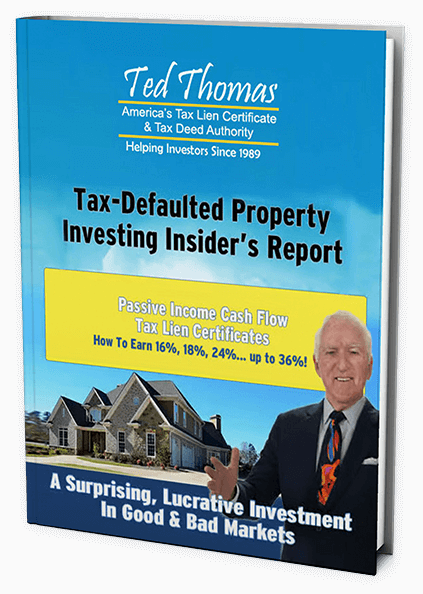Real estate investment tools have revolutionized managing and expanding your real estate portfolio. With the latest technology, you can access a comprehensive suite of options catering to every investing phase—from your first property search to the final stages of managing a rental or sale. These tools simplify market analysis, enhance decision-making, and ensure you have the necessary data to minimize risk and maximize returns.
The wide variety of software and applications available might overwhelm a beginner. Yet, the right tools can help you flatten the learning curve and make it easier to spot lucrative opportunities. If you are a seasoned real estate investor however, you can utilize these advanced tools for thorough market analysis, risk assessment, and lead generation on a large scale.
Key Takeaways
- Embracing the latest real estate tools is crucial for thriving in the 2024 market.
- As a beginner, it is recommended to start with Zillow to simplify your initial property search and purchase process.
- Intermediate tools like BiggerPockets and Roofstock are excellent for expanding your knowledge and accessing rental property investments effortlessly.
- Advanced investors can use LoopNet for commercial property insights and PropStream for detailed market analysis and finding off-market deals.
Specialized resources, such as Ted Thomas’ guides on tax-defaulted property investments, present unique opportunities for high returns, highlighting the importance of niche-specific knowledge.
Essential Real Estate Investment Tools for Beginners
1. Zillow – Navigating Your First Property Purchase
Zillow is an essential resource as you start your property research. It’s the most visited real estate website in the United States, and for a good reason. Zillow provides extensive listings and valuable tools like Zillow Home Loans for easy pre-approval and financing solutions. The platform enables a smooth buying process with transparent information on available properties. Whether renting or buying, Zillow offers a rich database and connects you with essential services to make informed decisions.
2. BiggerPockets – Learning and Networking Platform
BiggerPockets stands out as the premier learning and networking hub for real estate education and networking. It caters to over 2 million members, from beginners to experienced investors, offering a vast library of free resources, including educational content and interactive forums. The platform allows you to discuss strategies, ask questions, and leverage the experience of its extensive membership base to enhance your real estate strategies.
3. Roofstock – Streamlining Rental Property Investments
If you’re aiming to invest in rental properties without the traditional legwork, Roofstock is a game-changer. This online marketplace specializes in tenant-occupied single-family rental homes. This means you don’t have to find and screen tenants, streamlining the investment process for beginners and busy professionals. Roofstock provides valuable expertise and assists you in assessing and finalizing property deals. The goal is to make your entry into the rental market as simple and hassle-free as possible.
Top Free Real Estate Investment Tools
Specific online tools stand out in real estate investment by offering invaluable data and analytics for free.
4. Redfin – Comprehensive Real Estate Insights
Redfin revolutionizes the home buying experience with a vast database of listings enhanced by satellite imagery. It integrates technological innovation and practicality, yielding a platform where you experience greater efficiency in the real estate market. Homes listed on Redfin tend to sell quicker than the industry average, often resulting in significant time savings for sellers. Redfin also offers real-time market trends and property price estimation, making investment decisions easier.
5. Mashvisor – Quick Investment Property Analysis
Mashvisor is a vital cloud-based platform that offers quick analytical tools to assess the profitability of residential properties and Airbnb rentals. Its system evaluates performance metrics such as occupancy rates, average rent, and potential cash flow, delivering a comprehensive analysis that helps you identify lucrative investment opportunities swiftly.
6. CoStar – In-depth Market Research
CoStar provides professionals with a robust lease management software, facilitating the processes of being a landlord and marketing. It also helps real estate businesses with data tracking and analysis—from leases to construction project budgeting—maximizing cost-saving and optimizing asset management.
Advanced Tools for Commercial Real Estate Investing and Market Analysis
As you advance in your real estate investment journey, advanced software platforms become indispensable by offering comprehensive data insights in the commercial space and marketing automation.
7. PropStream – Detailed Market Analysis and Leads
PropStream provides a robust suite of tools for thoroughly analyzing the real estate market both nationally and locally. This software simplifies identifying potential investment opportunities, most notably distressed and off-market properties. You can use PropStream’s multi-source data and marketing tools to target and engage property owners, analyze neighborhood trends, and predict potential profits precisely.
8. REI/kit – For Serious Market Analysis and Deal Evaluation
For those planning on scaling their real estate investing portfolio, REI/kit features advanced artificial intelligence capabilities and automation. Its automated five-channel communication system, including AI-powered SMS messaging, enables you to reach prospects through various mediums. This ensures sustained scalability and profitability for your property business.
9. LoopNet – Commercial Property Insights
LoopNet is a premier search tool for investors in the commercial property sector. It offers an extensive for-sale and lease listing database. The database includes detailed property information, financials, and high-resolution media. You can personalize your property searches with specific criteria and receive updates through email notifications. This application is also valuable for tenants looking to connect directly with brokers for additional property information or to arrange property tours.
Innovative Tools for ROI Calculation and Risk Assessment
Given the complexity of real estate investment deals, having a reliable tool to calculate return on investment (ROI) and assess risks is crucial. Tools dedicated to precise analytics of potential investment properties are discussed below.
10. DealCheck – Simplify ROI Calculations
DealCheck enables even beginners to conduct thorough real estate deal analyses. It stands out for its user-friendly interface and comprehensive ability to determine ROI accurately. By considering financial indicators such as cash flow, cap rates, tax considerations, interest rates, and overall ROI, DealCheck presents a clear picture of the profitability of investment properties.
Users appreciate this platform for its versatility. DealCheck caters to diverse real estate assets ranging from single-family homes to multi-family properties, as well as specialized investment strategies like the BRRRR (Buy, Rehab, Rent, Refinance, Repeat) method.
Mobile Apps for Real Estate Investors on the Go
With today’s technology, you are now able to search, bid, and even manage your real estate investments anytime, anywhere.
11. Realtor.com Real Estate App – Mobile Property Search
Realtor.com Real Estate app is a comprehensive mobile tool for finding homes for purchase or rent across the United States. With various filters, you can perform detailed searches and view results as a list or interactively on a map. Features like 3D tours and a wealth of information on homes and neighborhoods streamline the property search process, assisting in scheduling tours or contacting agents quickly. Essential financial tools within the app also help estimate monthly costs and affordable mortgage options based on your finances.
12. Xome Auctions App – Real Estate Auction Platform
Xome Auctions introduces a novel approach to purchasing properties through auction events. This platform provides free listing services for sellers and a wide range of property choices for buyers, from commercial to REO and short-sale properties. While mindful of Xome’s policies and fees on top of your winning bid, its exclusive marketplace and timed auction events are significant for those looking to diversify their bidding strategies in the real estate sector.
13. Stessa – Rental Property Finances
Lastly, for investors focusing on rental properties, Stessa offers an intuitive mobile app to manage and track the financial performance of their investments with the following features:
- Cash Flow Analysis
- Expense Tracking
- Portfolio Management
- Property value estimates from local government and third-party sources
Simple yet effective, Stessa also provides real estate investors with a centralized dashboard. This dashboard pulls data from various sources and offers high-level insights into portfolio performance at a glance.
Specialized Investment Real Estate Tools
Modern platforms offer specialized investment tools, from crowdfunding to accessing institutional-quality real estate.
14. CrowdStreet – For Commercial Real Estate Investing
CrowdStreet opens doors to exclusive commercial real estate investments typically reserved for institutional investors. This online marketplace allows accredited investors to choose from diversified funds, individual deals, or tailored portfolios, with investments often spanning 3 to 10 years, requiring a medium to long-term capital commitment.
15. Fundrise – Real Estate Crowdfunding
Fundrise introduces you to real estate crowdfunding, focusing on long-term growth. Portraying itself as the industrious tortoise of investment platforms, Fundrise emphasizes slow and steady growth, making real estate investing accessible with as little as $10. Investors can start by creating an account and selecting an investment plan and accessing the wide range of institutional-quality real estate investments.
16. Cadre – Access to Institutional Quality Real Estate
Cadre uses cutting-edge artificial intelligence to allow you to participate in high-growth real estate markets. With a minimum investment requirement, Cadre provides access to a diversified real estate portfolio featuring quarterly distributions and investments in markets selected for their growth potential, such as Seattle and Washington, D.C.
Tax-Defaulted Real Estate Investing Tools & Resources
Investing in tax-defaulted real estate from home can be exciting and profitable, especially when you explore this niche. Imagine earning up to 24% interest on investments that are not only secure but also backed by law. Various online tools and data sources designed for this unique investment opportunity are discussed below to give you a jumpstart.
Auction Listing Websites
The hardest part of tax defaulted property investing is the search. Websites such as LienHub.com, RealAuction.com, Bid4Assets.com, AARauctions.com, and Tax-Sale.info offer a comprehensive range of auction listings allowing you to bid on tax-defaulted properties.
These platforms provide an aggregated list of available tax liens and deeds for the upcoming auctions they represent – however, the best tool to simplify your search for viable investment opportunities is Ted Thomas’ Tax Auctions Research Interactive Map. This map features lists of tax delinquent properties on the auction block by state. Below is a sneak peak of this powerful tool:
Population Demographics
Demographic trends can heavily influence the value of tax-defaulted properties. Investors often review the list of states by population on Wikipedia and consider migration patterns, like those reported in the 2023 National Movers Study by United Van Lines, to assess market demand. By keeping a finger on the pulse of:
- Population growth
- Demographic shifts
- Migration trends
- State-by-state population data
You’ll be well-equipped to pinpoint areas ripe for investment.
Economic Indicators
Economic health indicators such as job growth and unemployment rates are available through resources like FRED Economic Data, while comprehensive census data can be accessed at Census.gov. These indicators highlight where the housing market might be heating up or cooling down, allowing you to adjust your investment strategies accordingly.
You should also consider safety metrics such as crime rates on City-Data.com and Niche.com. These resources provide a well-rounded understanding of the factors that can affect property values.
Tax-Defaulted Real Estate Investing Guides
Ted Thomas is your go-to resource if you’re looking to start in tax-defaulted real estate investing, offering insider tips and courses tailored to your needs. For additional insights, Sandy Gadow’s “State-by-State Guide to Real Estate Closing Agents” complements Ted’s resources well. Together, they provide a comprehensive toolkit for beginners looking to start their tax-defaulted real estate investing career.
Frequently Asked Questions
What are the key features to look for in real estate investment management software?
Key features include ease of use, comprehensive financial analysis tools, secure data management, mobile access, and integrations with other applications critical for managing an investment portfolio efficiently.
How do you leverage real estate analysis tools to make informed decisions?
You use analysis tools that offer insights into market performance, property valuation, and financial forecasts. You integrate data to make decisions based on real-time metrics and historical performance indicators.
Conclusion
In today’s fast-moving real estate market, having the right tools is key. From starting with websites like Zillow to using more advanced tools like PropStream for deep dives into market trends, these tools help investors at every level. They make investing more straightforward and help you make smarter choices, which can lead to better profits. Whether you’re just getting started or looking to grow your portfolio, the tech out there today means you can be more strategic and efficient in investing in real estate.
Investing in tax-defaulted real estate can be a smart move for to enhance your portfolio. Websites that list auctions and expert guides, like those from Ted Thomas, are gold mines of information for making money through tax-lien certificates and tax deeds. Using these specialized tools and learning resources can open up great opportunities for earning. It’s a part of real estate investing that pays off if you want to maximize your returns even while staying at home.




